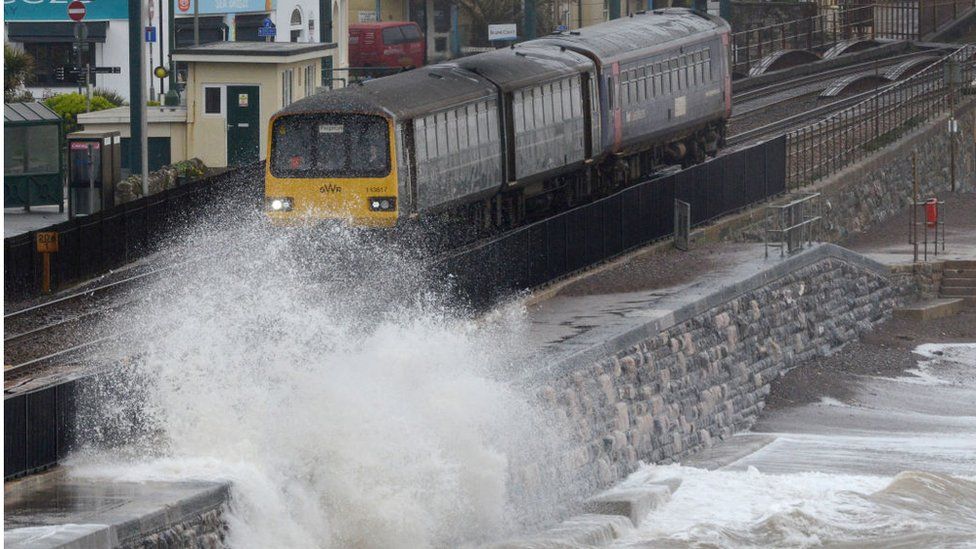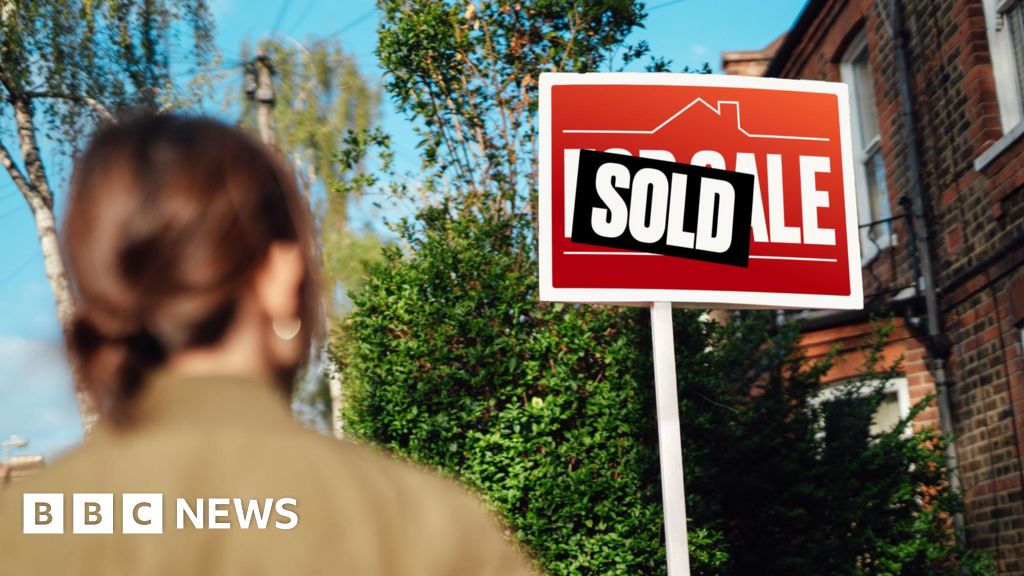ARTICLE AD BOX
 Image source, Getty Images
Image source, Getty Images
By Tom Espiner
Business reporter, BBC News
Network Rail is aiming to turn hundreds of staff into "amateur meteorologists" as part of plans to deal with the effects of climate change.
It wants to help staff to interpret weather forecasts to make better decisions during storms or heatwaves.
The public rail body said it will spend £2.8bn over the next five years on efforts to cope with extreme weather.
Its boss Andrew Haines said climate change was "the biggest challenge our railway faces".
"The extreme weather of the past year that has seen an unprecedented 14 named storms, has taken its toll on our railway - with experts predicting more of the same to come," he said.
As the Earth's climate changes due to global warming, weather events such as heatwaves and storms are set to become more intense, and flooding more severe.
It has led to Network Rail, which owns and maintains the railways, "relentlessly" having to rebuild embankments and cuttings due to more landslips caused by heavier rain in a way that its predecessor British Rail never had to, a spokesman said.
The body announced plans to train hundreds of rail controllers at its own "weather academy", which is a collaboration between Newcastle University, the Met Office, and MetDesk, a private weather forecasting firm.
"By training with actual meteorologists, our people will be better placed to make positive decisions when there is extreme weather, from speed restrictions to - in extreme circumstances - closing lines," the spokesman added.
The controllers will not get a qualification, and their training will not replace the detailed forecasts Network Rail currently uses, but it will help them "become more informed and well-rounded decision makers", the spokesman said.
As well as weather training, Network Rail said it planned to increase and make drainage on rail lines more resilient. It is also aiming to recruit 400 more drainage engineers, strengthen cuttings and embankments, and install sensors to monitor movement and CCTV at flood sites.
It said deploying new technology would allow trains to run at higher speeds during stormy weather.
Inadequate drainage and heavy rain can cause serious or even fatal incidents on the railways. In 2020, a train derailed at Carmont in Aberdeenshire after hitting debris that had washed out of an improperly installed drainage ditch, killing three people and injuring six.
'Spending less'
But while Network Rail has announced its £45.4bn plan to mitigate the impact of climate change over the next five years, the amount is a cut in real terms of £200m compared with the previous period.
With funding being tighter, Network Rail said it would focus investment on "the parts of the railway that affect the most people and the aspects that protect safety".
It also plans to make cost savings of £3.9bn.
However, Bruce Williamson from campaign group Railfuture said passengers wanted a "reliable railway", which would only happen from "regular, long-term investment to a high standard".
Fewer than two thirds of trains in the UK were on time between October and December 2023, and roughly 5% of trains were cancelled.
This was for various reasons, including faults attributed to Network Rail, and faults by train operators.

 9 months ago
133
9 months ago
133








 English (US) ·
English (US) ·